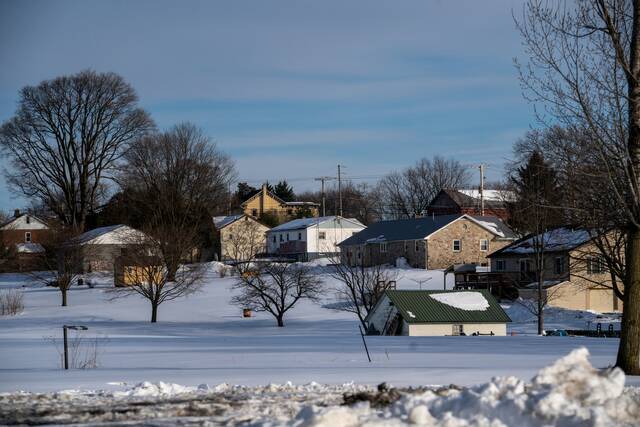Pennsylvania could regain the dubious moniker as the nation’s puppy mill capital without a hike in the state’s dog license fees this year, Department of Agriculture Secretary Russell Redding warned Wednesday.
He joined two state lawmakers and Gisele Fetterman, wife of Lt. Gov. John Fetterman, seeking support for an annual license fee increase from $6.50 to $10. Lifetime fees would increase from $31.50 t0 $49.
The fee hasn’t been increase in 25 years, Redding said.
“For the first time since the state dog law was enacted in 1893, the department in 2020 had to use taxpayer funds to enforce the state’s dog laws,” he said.
The bureau’s budget of $8.6 million had a funding deficit of $1.4 million, and the department has included a supplemental appropriation in Gov. Wolf’s proposed budget to fill the gap from last year and is seeking another transfer of $1.5 million in 2021-2022, Redding said.
“It’s beyond critical,” he said.
During the past 25 years, the agriculture department’s Bureau of Dog Law has seen its staff cut by 23%. It has 57 full-time employees, officials said. The bureau monitors breeding kennels and boarding facilities, manages the state’s dangerous dog registry, oversees licensing and state dog wardens, reimburses shelters for housing strays, and investigates puppy mills and disease outbreaks at kennels and shelters.
Redding noted that large population centers in Lancaster and Montgomery counties are both without dog wardens because of funding shortfalls. He said many of the state’s existing dog wardens investigate incidents in multiple counties because of the cutbacks.
The bureau is funded primarily through the cost of dog licenses.
“We’ve been warning for some time now that without legislative action to increase the dog license fee to fund the bureau that protections wouldn’t be able to continue at the same level of service for the dogs and citizens of Pennsylvania,” Redding said. “… The bureau has been unable to fill vacancies, which is stretching wardens thin, pulling them from other regions to cover more territory, resulting in fewer kennel inspections and an inability to keep up with public complaints about strays, vicious dogs or illegal kennels.”
The impact has been statewide, officials said.
Shannon Powers, press secretary for the Department of Agriculture, confirmed that in southwestern Pennsylvania the lack of manpower has resulted in the cutback of annual canvassing in communities for dog licenses by wardens since 2019.
Annual canvassing activities often prompt residents to acquire dog licenses.
Redding estimated Wednesday that only 50% to 60% of dogs in the state are licensed.
According to Westmoreland County Treasurer’s Office, the number of dog licenses sold between 2019 and 2020 declined more than 17%, dropping from from 40,399 to 33,403. Officials from the Allegheny County Treasurer’s Office did not immediately return calls seeking comment.
Democratic state Sen. Judy Schwank, of Berks County, and state Rep. Eddie Day Pashinski, of Luzerne County, said their corresponding pieces of legislation would raise the dog license fee and would adequately fund the bureau to continue protecting both dogs and the public.
“If you can’t afford about one more cent a day for a fee, then quite frankly, you probably can’t afford a dog,” Pashinski said.








